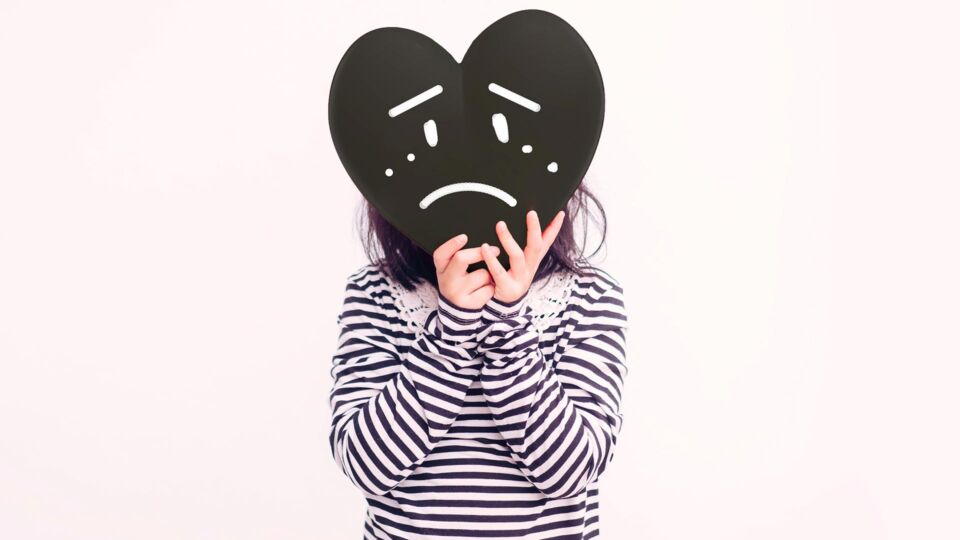Is Your Teenager Suffering From Low Self-Esteem?

Troubled Teens
To teenagers, appearance is a big thing to them. Teenage years are a period when they experience awkwardness and changes to various parts of their bodies. Some will put on weight, develop body odour and crowded teeth, while others have to live with bad acne.
Through these sudden and often unpleasant changes, teenagers tend to become more self-conscious of their appearance. In the process, they may develop low self-esteem. Whether it’s battling with the inner self or seeking aesthetic treatments to boost your confidence, read here for experts’ advice.
Low self-esteem
Teenage years are turbulent times. According to Dr Lim Yun Chin, Specialist in Psychiatry, Raffles Counselling Centre, teenagers are faced with many challenges: physical maturation, emergence of autonomous self, increased social and academic demands and a desire for intimacy with others.
According to a survey, 84% of teenage girls wanted to change the way they look and 60% felt bad about themselves because of their looks or weight.
“This is a worrying figure. Girls are likely to have lower self-esteem as they are generally more emotionally sensitive than boys and hence naturally more self-conscious than the boys as well,” commented Dr Lim.
The reality
To make things worse, teenagers usually want to be perfect and they would often compare themselves with others. From looks to material possessions to individual strengths, etc.
“However, relying on social comparison information can be confusing to teenagers because of the large number of reference groups available to them- good looking ones, athletic types, smart ones, etc.
Research has shown that there could be a slight drop in self-esteem during the teenage years,” said Dr Lim.
According to Dr Lim, reference groups can be anyone, celebrities they watch and idolise on the television and even their peers or just a model on magazines they read.
When ideals do not match up with reality, it can be a perplexing situation for teenagers. As such teenagers have a tendency to develop a sense of failure and affect self-esteem development.
“Low self-esteem if untreated or ignored, may implicate teenagers to develop depression, suicide or anorexia. If compounded by difficult school situations, family complications or stressful life events, low self-esteem can increase the intensity of the teenager’s problems,” said Dr Lim.
Am I suffering from low self-esteem?
- feeling guilty most of the time,
- doubtful of yourself,
- self-critical,
- having constant negative thoughts and feelings,
- ashamed of yourself most of the time,
- trying to be perfect and not accepting compliments well,
- have difficulties relating with others,
- feeling frustrated and agitated easily,
- using negative language on self,
- always wants things to be perfect,
- lacking self-assertiveness and self-worth.
If you observe anybody (including yourself) usually displaying most of these attributes, they may have some issues with their self-esteem. Counselling or therapy may be introduced if the condition is serious.
Low self-esteem ≠ End of the world
Low self-esteem can affect almost anybody. According to Dr Lim, teenagers can prevent themselves from developing low self-esteem by accepting who they are and being less harsh on themselves when they make mistakes. Teenagers can also learn coping strategies to deal with their problems and learn how to recognise their own negative thoughts.
The good news is that one can regain their confidence and self-esteem. It is just the matter of seeking help, be it seeing a counsellor or joining self-help groups. Sometimes maturity plays a part. It is especially important to seek treatment when your daily life is affected.
“There are treatments available for sufferers of low self-esteem. One of which is Individual psychotherapy. Other therapies includes Dialectical Behavioural Therapy (DBT), anger management or Cognitive Behavioural Therapy (CBT). In CBT, the teenager is taught how to recognise negative thoughts and to reframe them into positive ones,” said Dr Lim.
Research has shown that self-esteem fluctuates across life span. Thus, teenagers may not be able to prevent what is going to happen to them, but they can help themselves by being more aware of what causes them to feel negative about themselves and seek help to address those concerns.
A More confident looking me
During the period of uncertainty and hormonal imbalance, teenagers would like to be in control of certain things, which often is in the way they look. With the help of medicine, teenagers are now able to modify how they look by undergoing orthodontic treatments, such as braces or by putting on cosmetic lenses or contact lenses.
However, they must always be mindful that these changes can be hazardous to health if they are not done properly.



